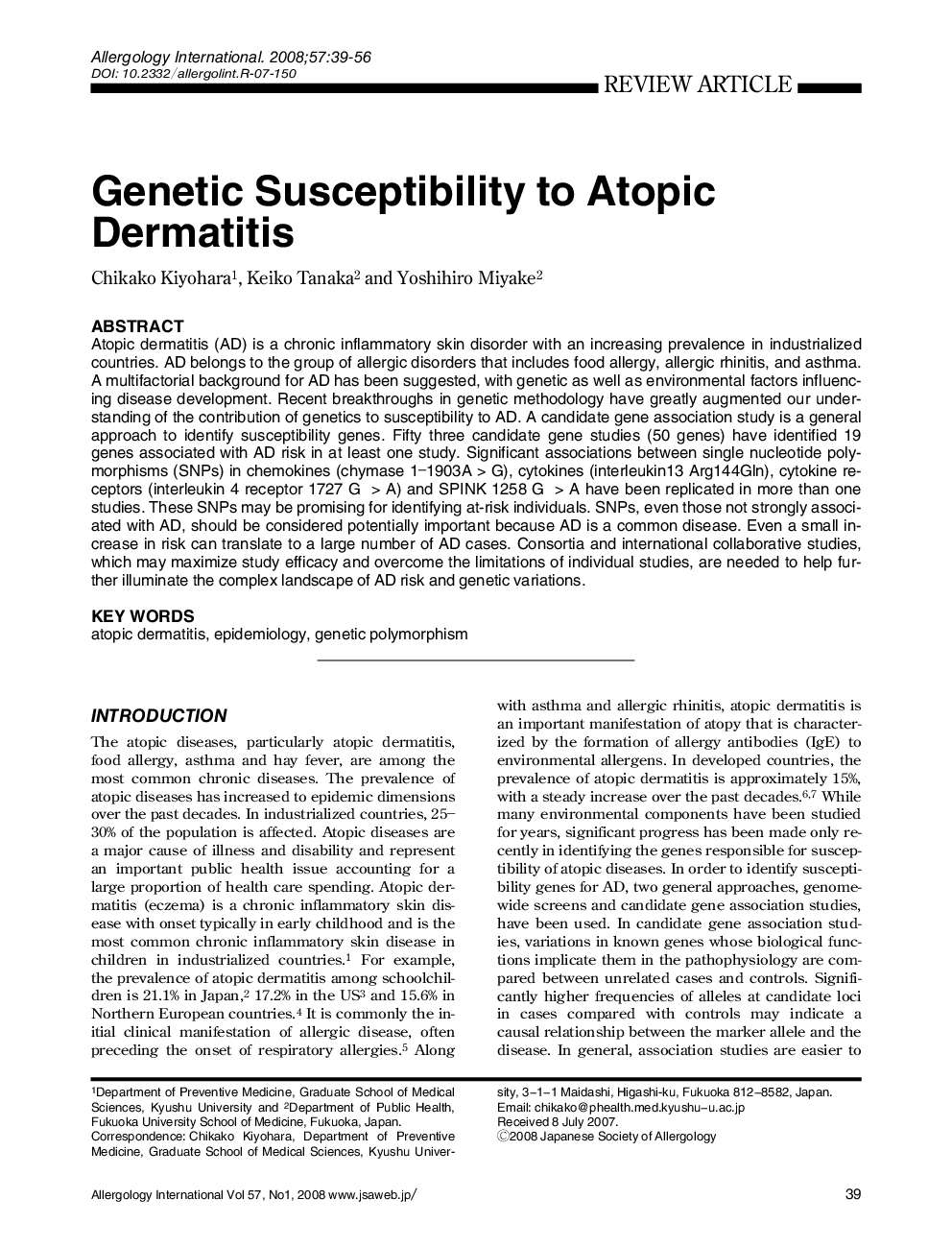| Article ID | Journal | Published Year | Pages | File Type |
|---|---|---|---|---|
| 3341131 | Allergology International | 2008 | 18 Pages |
ABSTRACTAtopic dermatitis (AD) is a chronic inflammatory skin disorder with an increasing prevalence in industrialized countries. AD belongs to the group of allergic disorders that includes food allergy, allergic rhinitis, and asthma. A multifactorial background for AD has been suggested, with genetic as well as environmental factors influencing disease development. Recent breakthroughs in genetic methodology have greatly augmented our understanding of the contribution of genetics to susceptibility to AD. A candidate gene association study is a general approach to identify susceptibility genes. Fifty three candidate gene studies (50 genes) have identified 19 genes associated with AD risk in at least one study. Significant associations between single nucleotide polymorphisms (SNPs) in chemokines (chymase 1–1903A > G), cytokines (interleukin13 Arg144Gln), cytokine receptors (interleukin 4 receptor 1727 G > A) and SPINK 1258 G > A have been replicated in more than one studies. These SNPs may be promising for identifying at-risk individuals. SNPs, even those not strongly associated with AD, should be considered potentially important because AD is a common disease. Even a small increase in risk can translate to a large number of AD cases. Consortia and international collaborative studies, which may maximize study efficacy and overcome the limitations of individual studies, are needed to help further illuminate the complex landscape of AD risk and genetic variations.
